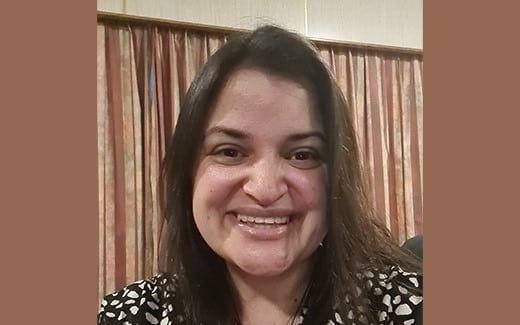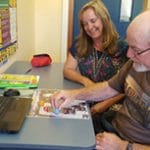Back to the Classroom
What drives someone with learning difficulties to become a teacher? Former SPELD NZ student Elizabeth Luoni Verkleij is Head of Social Sciences and Languages at Kuranui College. She’s also an Across School Lead within the South Wairarapa Kāhui Ako. Here’s how Elizabeth ended up back in the classroom, in spite of her struggles as a child.
My earliest memories are being in a large class and finding it really hard to concentrate on the work. I felt like I wasn’t very smart. I would sometimes receive Reading Recovery, but most of the time I was left to my own devices. I learned avoidance strategies. I didn’t do the work because I believed that it would be wrong anyway. I was accused of being lazy when, really, I didn’t understand.

Everything changed after my mum took me to SPELD testing and lessons. I remember my SPELD teacher being really kind. I vividly recall a sense of pride, rather than stress, that I understood what I was learning. I felt like I could concentrate more in class, I felt more engaged, I felt like I could cope. My SPELD teacher helped me understand the basics in literacy, which are some components that I use now. I began enjoying public speaking; now I can’t stop talking.
High school was a struggle but there were a couple of teachers who taught in a way that I could understand through chunking and scaffolding. In Year 11, history became the subject that was my saving grace. I was curious and that curiosity encouraged me. It lit a fire that is still alight.
Tertiary were my favourite years as a learner. I was choosing my courses and soaked up the information like a sponge.
I chose teaching as a career, as I had been a netball coach when I was at high school and it built my confidence. I found that I could connect with teenagers. I was enthusiastic about a course that I could teach, such as history.
I’ve always enjoyed learning a language. So when I was told I wasn’t clever enough in Year 9 to learn te reo Māori, I was quite upset, though I did move into the class later that year. It’s ironic that now I oversee te reo Māori and taught Year 9 te reo at one kura. I’m also a self-taught Latin teacher, which I taught in the UK for three years.
My learning difficulties flare up from time to time. My spelling is still atrocious, or I will write a word before another word in a sentence when it’s supposed to be the other way round. To cope, I take deep breaths. I accept that is who I am. I’m honest with my students and they see it as part of my make-up. They call it one of my ‘super-powers’, which encourages me to continue doing what I’m doing.
I’m very mindful of students with learning difficulties in the classes I teach. I focus on adapting the resources and approaches to supporting how they process information. I focus on putting myself in their shoes, seeing through their lens.
Learning difficulties are so common. I’m living proof that you can still be a teacher or whatever profession you want to pursue. I would advise our rangatahi to keep trying and not give up. Your future self is proud of the small steps you are taking. Do the mahi and you’ll be okay. I’m humbled by how far I’ve come and would not have been here without my parents, my advocates.






